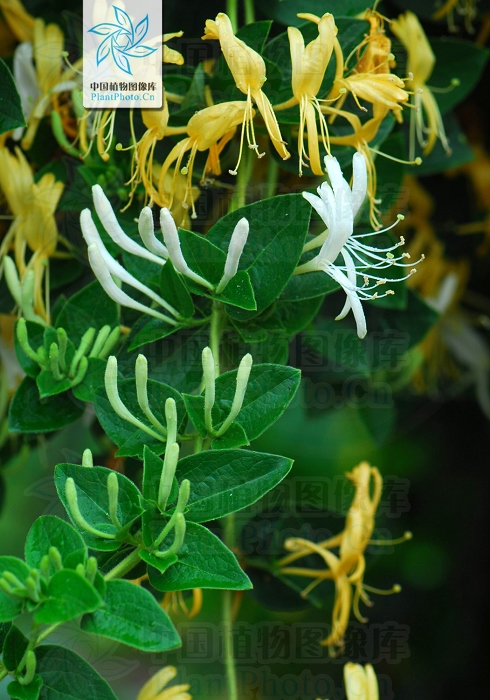 Description
Description
Lonicera japonica is a perennial, evergreen, twining vine cultivated worldwide as an ornamental plant owing to its numerous, sweet-smelling, double-tongued flowers. L. japonica is an important antiviral used to treat the SARS coronavirus, influenza A viruses, the H1N1 flu virus, and Enterovirus 71. It has further value as a component of healthy food and beverages.
 Scientific classitication
Scientific classitication
Family: Caprifoliaceae
Genus: Lonicera
Common NameJapanese honeysuckle, Ren Dong, Jin Yin Hua
- SUMMARY
-
Published journals
New Phytologist
-
Publish date
2020.03
-
Sequence Method
Oxford Nanopore
-
Assembly
GWHAAZE00000000
-
Assembly Method
CANU 1.8, SMARTdenovo, pilon
-
Genome Size
843.2 Mb
-
Genome Coverage
100x
-
Scaffolds
9
-
Contigs
919
-
N50
2148893
-
GC%
34.11
-
Bioproject
PRJCA001719
-
Data
-
Reference url
https://nph.onlinelibrary.wiley.com/doi/abs/10.1111/nph.16552
 Reference
Reference
Pu, X., Li, Z., Tian, Y., Gao, R., Hao, L., Hu, Y., He, C., Sun, W., Xu, M., Peters, R. J., Van de Peer, Y., Xu, Z., & Song, J. (2020). The honeysuckle genome provides insight into the molecular mechanism of carotenoid metabolism underlying dynamic flower coloration. The New phytologist, 227(3), 930–943.